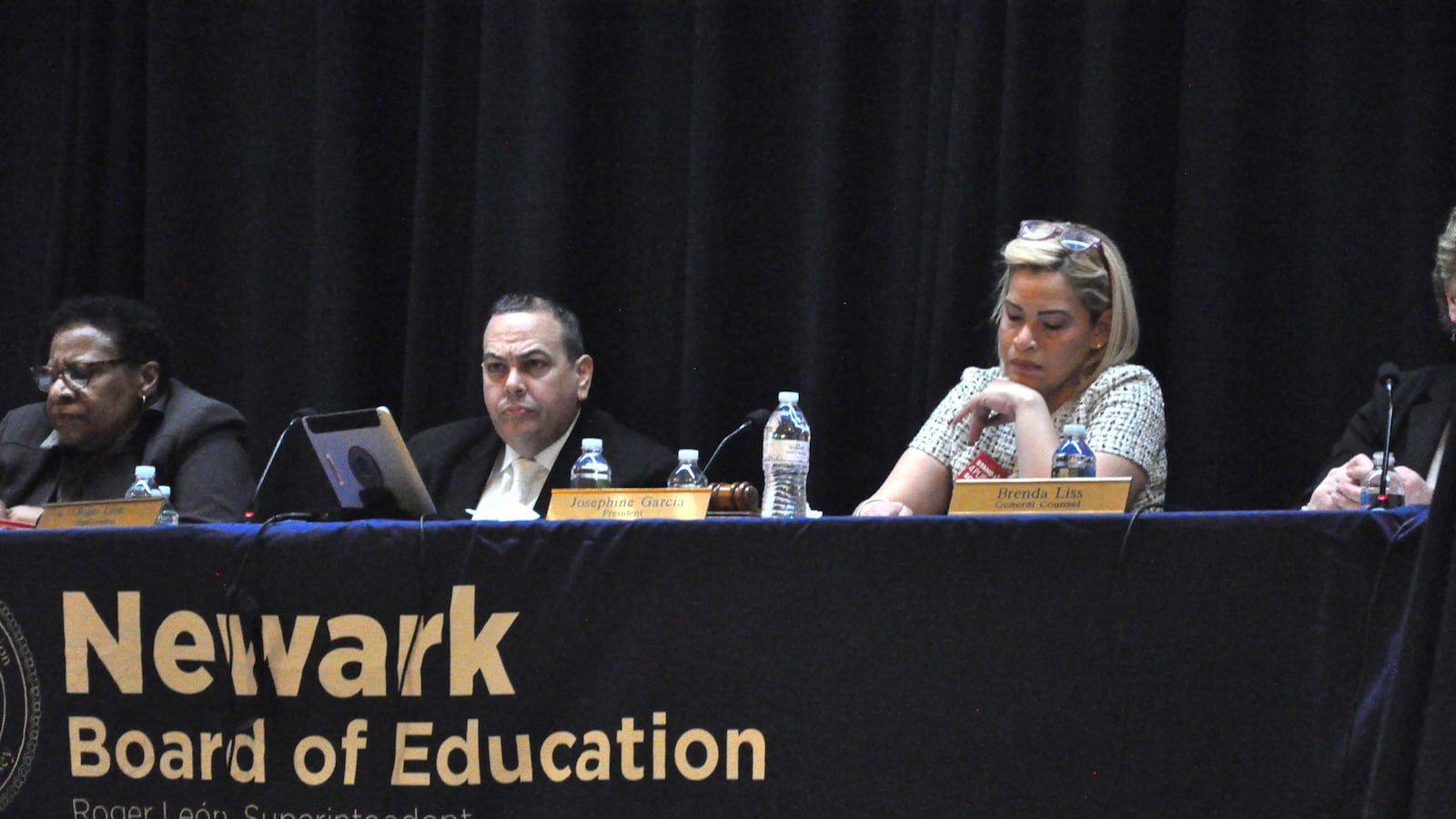Even after coming under fire for their alleged disinterest in hearing public input, the Newark school board is weighing whether to limit the number of speakers at monthly board meetings.
Newark community members have long attended school board meetings to communicate their concerns to the board. The board, still in its first year after reclaiming local control from the state, is considering capping the number of speakers at board meetings at 30 people. Some board members cited the length and the tone of public comment as reasons for wanting to cut it off.
That would be a bold move after public criticism of the board’s alleged lack of transparency.
As required by New Jersey law, the board allots time to hear public comment at all its public meetings. However, the law permits boards to set parameters, and the Newark board already has put some limits in place.
It set a maximum of 90 minutes for public participation at regular board meetings. Speakers must sign up online at least five days before a meeting. At the board’s other meetings, it limits public participation to 30 minutes total and a maximum of 10 speakers on a first-come basis, according to the district’s website. Each speaker has 3 minutes at the microphone.
At Monday’s special board meeting, board members discussed capping the number of speakers at regular board meetings at 30 people even if not all speakers use their allotted 3 minutes. Four of the nine board members — Shayvonne Anderson, Reginald Bledsoe, Tave Padilla, and Asia Norton — were absent.
Although some board members, including board President Josephine Garcia who convened the special meeting and proposed the idea, seemed to favor limiting the number of speakers at regular board meetings, others were less sure.
“I think we should be careful about jumping into those types of decisions. I don’t see the benefit, and it might cause unnecessary community backlash,” board member A’Dorian Murray-Thomas said. “We should be wary of adding more regulations.”
She asked what the benefit of a policy like this might be.
Board Vice President Dawn Haynes responded, “Not being here all night getting cursed out.”
“People are too disrespectful,” board member Flohisha Hill added. “It takes too long.”
Murray-Thomas argued that public participation doesn’t often exceed 30 speakers and it’s the board’s duty to listen to the community.
“I get where everyone’s coming from, but our job is to hear the community,” she said. “If 40 people sign up to be heard, and there’s a 90-minute allotment, it’s possible for us to have both.”
This discussion came after increasing dismay at the board’s alleged unwillingness to listen to the community. In August, the board sent letters threatening to ban two frequent speakers who sometimes exceed their time limit.
The letters told Yolanda Johnson and Denise Cole, local advocates who ran for school board last year, that further instances of “disregard for the rules of decorum” at board meetings could result in a ban from “any and all future meetings of the Board of Education.”
The board has not carried out its threat. The possible ban suggested to some that the board wanted to curb criticism even as its members and Superintendent Roger León say they want parents to have a greater say in Newark schools.
Many Newarkers vociferously opposed the state’s 22-year control of the district and had argued that it was anti-democratic and robbed residents of having meaningful input into school policy.
Some community members felt that the letters sent the message that the board is uninterested in hearing from some concerned parents, and called the threats “divisive to our community.”
According to the New Jersey School Boards Association, boards of education may limit the number of speakers in a public comment period to manage the flow of the meeting and make sure there is time to address other school board business. However, association Communications Manager Janet Bamford said she is not aware of other boards of education that have a similar policy.
The Chicago school board limits the number of speakers at meetings, and requires them to sign up in advance. Parents have complained that spots disappear quickly, and the process discourages parents from being heard.
The Newark board is likely to discuss at its reorganization meeting in April how to handle public input.
“I don’t think that this is the right choice at the moment. It appears like they’re retaliating,” Johnson said, referring to the board’s possible policy change. “This community has been fed up with the transparency from the board, and the community of parents are the ones who put Roger in office. It’s going to be a fight if the board comes out with this, and the community is going to challenge it.”

